Notes
This article includes a list of references, related reading or external links, but its sources remain unclear because it lacks inline citations .(July 2014) |
Karl Dietrich Leonhard Engel (born Oldenburg, 21 February 1824; died Adlershof, February 1913) was a German musician and writer.
He went to Russia as a violin virtuoso at the age of 18, becoming a member of the Imperial Orchestra at Saint Petersburg at 22, and later its concertmaster. He went to Dresden in 1869 and took up his residence there.
Among his works are:
His musical compositions include a concerto in B minor and the humorous fantasy entitled “Jüdischer Carneval.”
This article includes a list of references, related reading or external links, but its sources remain unclear because it lacks inline citations .(July 2014) |

Johann Adam Weishaupt was a German philosopher, professor of civil law and later canon law, and founder of the Illuminati.

Friedrich Engels, sometimes anglicised as Frederick Engels, was a German philosopher, critic of political economy, historian, political theorist and revolutionary socialist. He was also a businessman, journalist and political activist, whose father was an owner of large textile factories in Salford and Barmen, Prussia.

Emil Jannings was a German actor, popular in the 1920s in Hollywood. He was the first recipient of the Academy Award for Best Actor for his roles in The Last Command and The Way of All Flesh. As of 2022, Jannings is the only German ever to have won the category.

Johann Gottfried Kinkel was a German poet also noted for his revolutionary activities and his escape from a Prussian prison in Spandau with the help of his friend Carl Schurz.

Karl August von Hase was a German Protestant theologian and church historian.
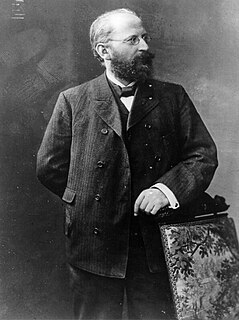
Eduard Bernstein was a German social democratic Marxist theorist and politician. A member of the Social Democratic Party of Germany (SPD), Bernstein had held close association to Karl Marx and Friedrich Engels, but he began to identify what he believed to be errors in Marxist thinking and began to criticize views held by Marxism when he investigated and challenged the Marxist materialist theory of history. He rejected significant parts of Marxist theory that were based upon Hegelian metaphysics and rejected the Hegelian perspective of an immanent economic necessity to socialism.

Dietrich Fischer-Dieskau was a German lyric baritone and conductor of classical music, one of the most famous Lieder performers of the post-war period, best known as a singer of Franz Schubert's Lieder, particularly "Winterreise" of which his recordings with accompanists Gerald Moore and Jörg Demus are still critically acclaimed half a century after their release.

Adam Friedrich Oeser was a German etcher, painter and sculptor.

Karl Konstantin Albrecht Leonhard Graf von Blumenthal was an officer of the Prussian Army and field marshal of the Imperial German Army, chiefly remembered for his decisive intervention at the Battle of Königgrätz in 1866, his victories at Wörth and Weißenburg, and above all his refusal to bombard Paris in 1870 during the siege, of which he was in command.

Karl Viktor Müllenhoff was a German philologist who specialized in Germanic studies.

Ernst Engel was a German statistician and economist, famous for the Engel curve and Engel's law.
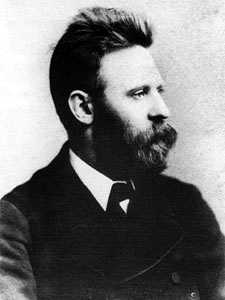
Johann Joseph "Hans" Most was a German-American Social Democratic and then anarchist politician, newspaper editor, and orator. He is credited with popularizing the concept of "propaganda of the deed". His grandson was Boston Celtics radio play-by-play man Johnny Most.
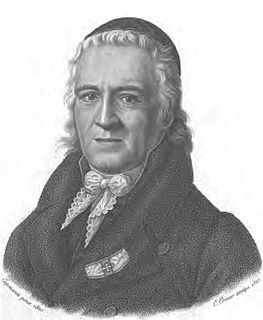
Karl Leonhard Reinhold was an Austrian philosopher who helped to popularise the work of Immanuel Kant in the late 18th century. His "elementary philosophy" (Elementarphilosophie) also influenced German idealism, notably Johann Gottlieb Fichte, as a critical system grounded in a fundamental first principle.
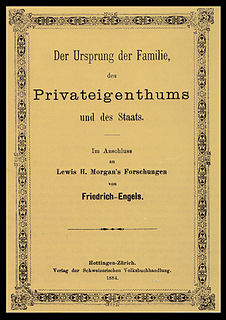
The Origin of the Family, Private Property and the State: in the Light of the Researches of Lewis H. Morgan is an 1884 historical materialist treatise by Friedrich Engels. It is partially based on notes by Karl Marx to Lewis H. Morgan's book Ancient Society (1877). The book is an early anthropological work and is regarded as one of the first major works on family economics.
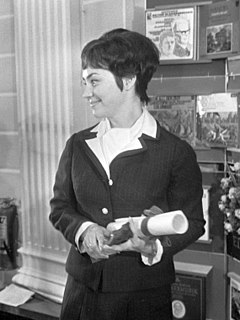
Edith Mathis is a Swiss soprano and a leading exponent of the works of Wolfgang Amadeus Mozart worldwide. She is known for parts in Mozart operas, but also took part in premieres of operas such as Henze's Der junge Lord.

Henry Boernstein [in Europe, Heinrich Börnstein] was a German revolutionary who served as the publisher of the Anzeiger des Westens in St. Louis, Missouri, the oldest German newspaper west of the Mississippi River. He was also a political activist, author, soldier, actor and stage manager, and was briefly yet closely acquainted with Karl Marx during his tenure as publisher of the radical newspaper Vorwärts. He played a major role in keeping Missouri in the Union at the start of the Civil War.

Leonhard Päminger also Paminger and Panninger was an Upper-Austrian born Lutheran theologian, poet and composer in Catholic Bavaria.
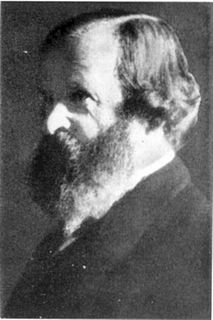
Eugen Oswald, was a journalist, translator, teacher and philologist who participated in the German revolutions of 1848–49.
"Withering away of the state" is a Marxist concept coined by Friedrich Engels referring to the idea that, with realization of socialism, the social institution of a state will eventually become obsolete and disappear as the society will be able to govern itself without the state and its coercive enforcement of the law.

Wolfgang Dietrich of Castell-Remlingen was a German nobleman. From 1668 until his death he was the ruler of the county of Castell-Remlingen, sharing power with his brother Friedrich Magnus of Castell-Remlingen. He also held other offices in the Margraviate of Ansbach and the Electoral Palatinate.